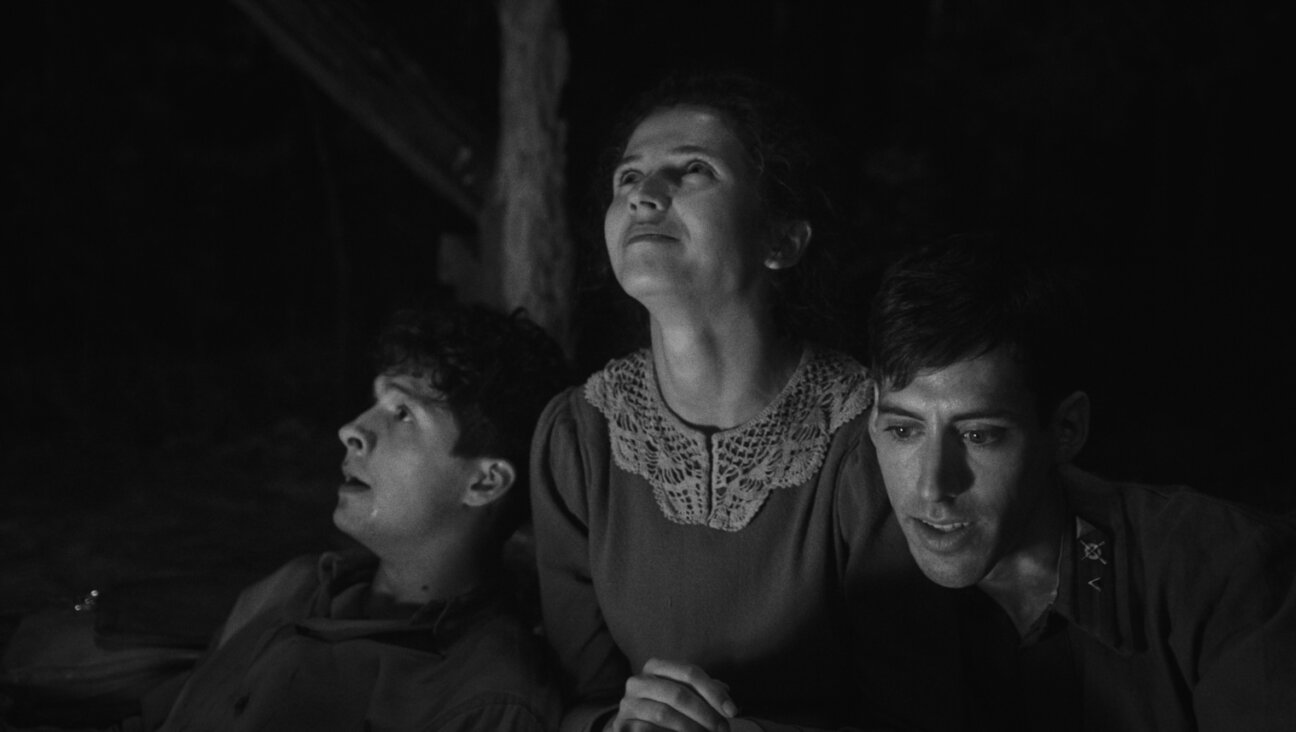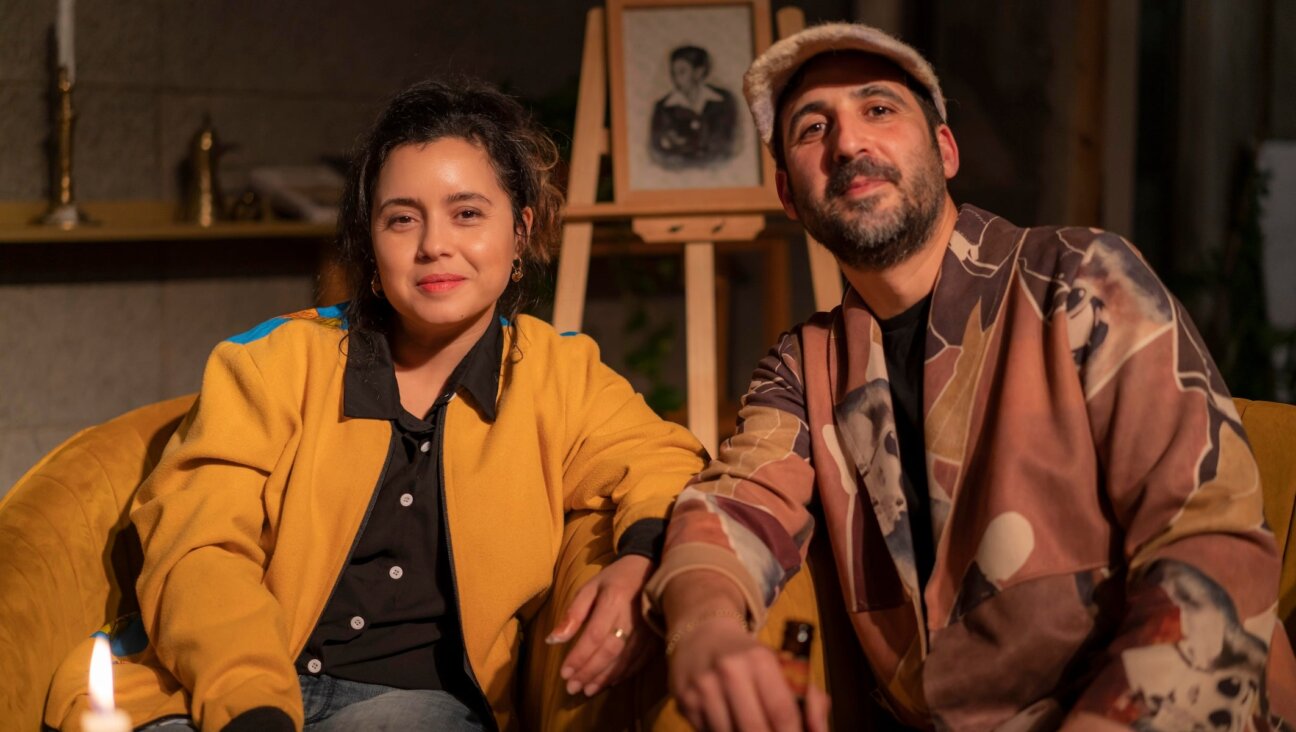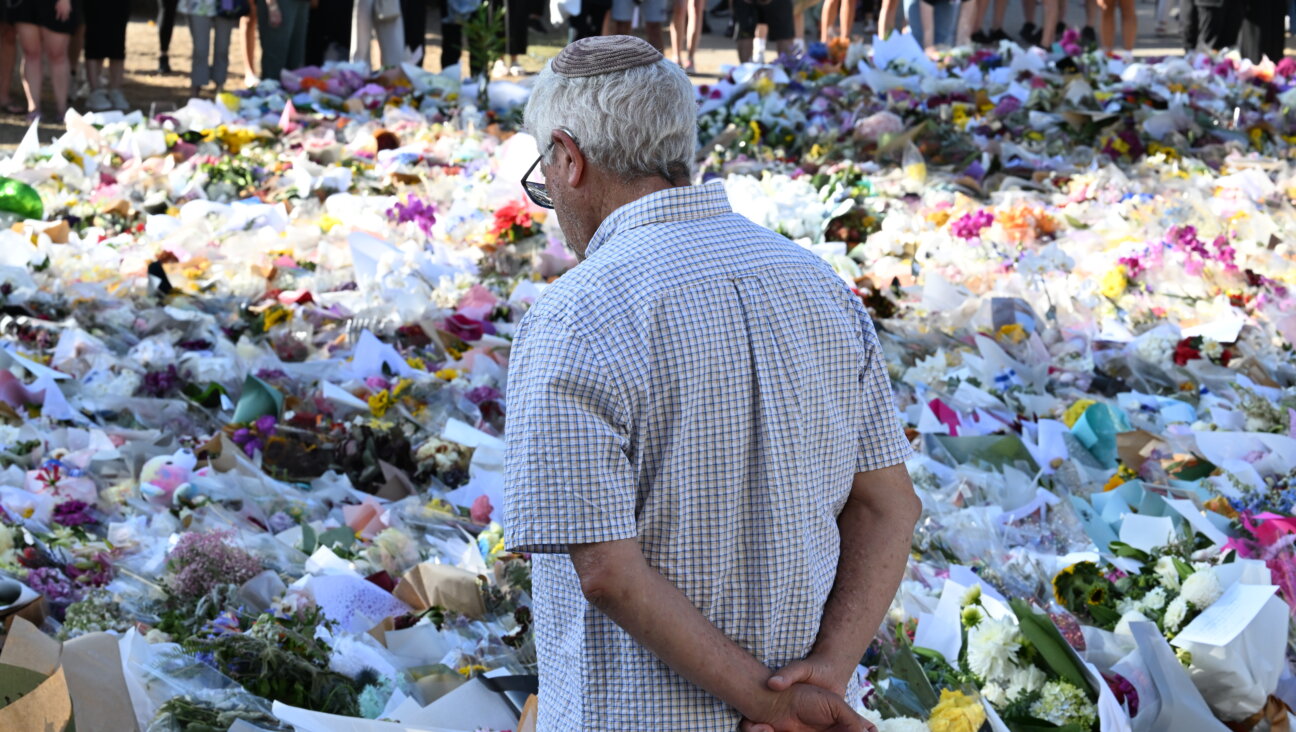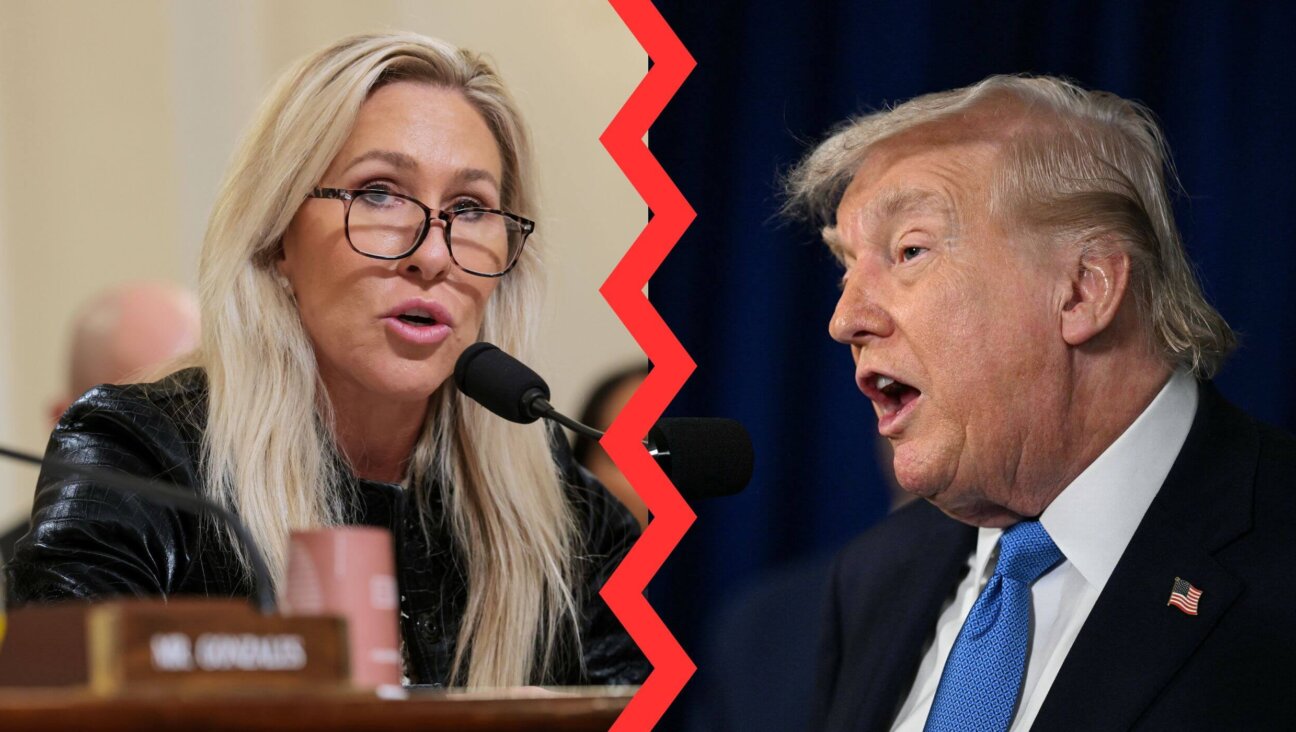Clash and Learn
Tova Hartman, co-founder of the “halakhic, egalitarian” Jerusalem synagogue Shira Hadasha, is a familiar voice to many readers of these pages. She has been active in various organizations, including the Jewish Orthodox Feminist Alliance, where she is an outspoken critic of what she refers to as the “hijacking” of the discourse around feminism in the Modern Orthodox world. She is also the author of a new book, “Feminism Encounters Traditional Judaism: Resistance and Accommodation” (Brandeis University Press), and she recently sat down with Melanie Weiss, an assistant editor of Lilith Magazine, for a discussion about it.
*The book is difficult to classify. It is neither textbook nor memoir nor how-to guide, but an account of the places where feminism and Modern Orthodoxy could, should and sometimes do meet. *
Although a psychologist by training, Hartman speaks easily of feminist theory and trends in the Talmud. With this book, describing her own grappling with her identity and affiliations, she may draw interest and approval from an even wider audience as she reminds us that Judaism — even traditional Judaism — is built on a long tradition of probing and searching, and attempts to make the world more just.
Melanie Weiss: This book is an amalgam: You cover your personal grappling with feminism and Modern Orthodoxy, use Shira Hadasha as a case study, enter into lengthy discussions about Freud, explore major rabbinical responsa of the 20th century, discuss sociological studies about niddah (traditional women’s ritual impurity) and cite most major feminist theorists — Jewish and non-Jewish. And yet the book rarely exhorts specific action: There’s no “to-do” list. For whom was this book published?
Tova Hartman: It’s not written strictly for any audience. I mean, of course I hope it will be taught in classrooms, but it’s not just for that. It’s for those who take the Jewish tradition seriously, or any tradition, for that matter. It’s for anyone who feels claimed by multiple value systems, and I’m not talking about only traditional value systems. Really, I wrote it for everyone who feels faced with an “either/or” in their identities, because I wanted to explore how two systems could interact and influence each other. In my case, those two systems are Modern Orthodoxy and feminism, so that’s what the book deals with. But one of the important things to take away is that there aren’t simple solutions. There isn’t a to-do list or a set of answers to these problems. I’m not exchanging one orthodoxy for another.
M.W.: There’s a brilliant passage in the chapter “The Paternal Voice in Liturgy” where you paraphrase Cynthia Ozick by saying that “the more we try to approximate the divine in human language rather than emphasize Its ultimate Otherness…the further we regress into the morass of pantheism from which it was the Torah’s great purpose to extricate us.” Yet, a few pages later you acknowledge the “red flag of apologetics” that’s raised in the highly intellectualized discussion about divorcing the gendered language of prayer from gender-specific meaning. Are you concerned about the possible misappropriation of this idea that we can “unpack” the gendered language of prayer?
T.H.: I’m not, actually. I don’t want to gloss over debate here. I don’t think forgoing debate on these difficult issues has helped make anyone frummer or more feminist. The issues facing us and the things we face are, frankly, terrible — but wonderful. There’s a lot of debate and disagreement facing us, but I’m not depressed about that. I’m really not. I’m interested in stopping all of the kvetching and really doing something. That’s what’s made Shira Hadasha such fulfilling work. It’s a community of people who agree to act.
Look, liturgy is made up of words that we’re supposed to try to understand and appropriate. It may be troubling at times, but we have to deal with it. And furthermore, the question of “Do we have to mean exactly what we say?” is not one I made up. It’s in the Talmud. The prophets changed the words we use. We have a long tradition of struggling with the words of the liturgy, and I feel that I’m just tapping into that and adding to it.
M.W.: You speak a number of times about “negative identity” — identifying something by what it is not — and you say Modern Orthodoxy’s use of self-definition this way has “cut it off from many potentially enriching spiritual and intellectual resources.” Even the title of your book uses the term “traditional Judaism” instead of “Modern Orthodoxy.” In a Jewish world where the terms “post-denominational” and “nondenominational” are slowly entering into our vocabulary, how might feminism affect our relationships to — and the relevance of — denominations?
T.H.: I think denominations have a real place in Jewish life. There are real differences between them, and those differences can be greater or lesser, but they’re definitely there. But way too much of Jewish identity — not just Modern Orthodoxy, either — is based around what it’s not. I think all the denominations could gain from talking to one another. Feminism — especially feminist psychology, which is really my specialty — speaks very explicitly about negative identity, so it’s helpful to us in understanding what parts of our Jewish identity come from fear. I think so much of the conversation about feminism in the Modern Orthodox community has been hijacked by this fear. Letting go of our negative identities doesn’t mean we embrace everyone and everyone’s practices, but we could have a much more positive conversation between movements. I think when we don’t, the Jewish people really lose out.
M.W.: This book is clearly an academic text, well researched, highly footnoted, deeply intellectual. And yet the main point of tension — Why remain Orthodox? — you touch on, but freely admit you can’t wholly explain. I imagine this remains a problematic issue for religious feminists of all stripes. Can you speak a little about the difficulties of writing about something that so defies quantification?
T.H.: There are definitely certain things that I recognize as part of that great and not always describable whole that keeps me anchored — things like commitment, history, love. Mothering, certainly. But there’s not an A plus B equals C equation for that. And I understand the basic human need for dignity and coherence, so I completely understand that some people feel compelled to leave the tradition, but I really wanted to explore other options, because I think people pay a high price for leaving. So, in the book I tried to show where these two traditions can meet. I think it’s possible to remain committed to solutions that are not simple — that might even be painful. Shira Hadasha is another example: We agree to “celebrate our compromises,” but sometimes we have to really just accept that we are compromising. It means we’re not completely satisfied with the result, but perhaps we understand that value of the something larger we’re compromising for. And, look, I can love and honor my grandmother and my mother without having to be exactly like them. We have room, and it’s a process.
M.W.: Women’s learning in the Modern Orthodox world has already dramatically increased, at least from an outsider’s perspective, with institutions like Drisha in New York, at the same time that women’s ritual participation has increased at places like Shira Hadasha. Is this a chicken-vs.-egg scenario? Will increasing women’s participation now lead to even more intense explorations of gender and Jewish practice?
T.H.: I really don’t want to make any specific predictions, because nobody knows where things will go. I will say that in all areas of human rights, one can never rest on one’s laurels. Other than that… I bless everything people are trying to do to integrate their multiple selves, men and women. Because feminism is not about women. It’s about how we stand, men and women, before God. How do we advance? How do we keep the conversation going? I think as long as people are open to what can be, we’ll keep moving forward. And that’s a good thing.
M.W.: The book is dedicated to your daughters, and you mention them several times as a real impetus for engaging in this work. What are your hopes and fears for them as feminist Modern Orthodox Jewish women?
T.H.: Motherhood has given me strength, but it is also the force behind this engagement — the desire to pass along to them tradition with integrity. And, maybe more than that, I wanted to be able to tell them that, in the face of adversity, their mother tried. That’s really important. We’ve had real discussions about the prices paid, which they can see. They’re sensitized to it, maybe over-sensitized. And there are real guards of the tradition. It’s not simple. But I felt it was very important for them to see we can try, even if it’s not easy. Of course, I have specific hopes for them. Not everything they would choose would automatically be wonderful! But most of all, I hope they’ve learned about how important it is to try to make things better.















